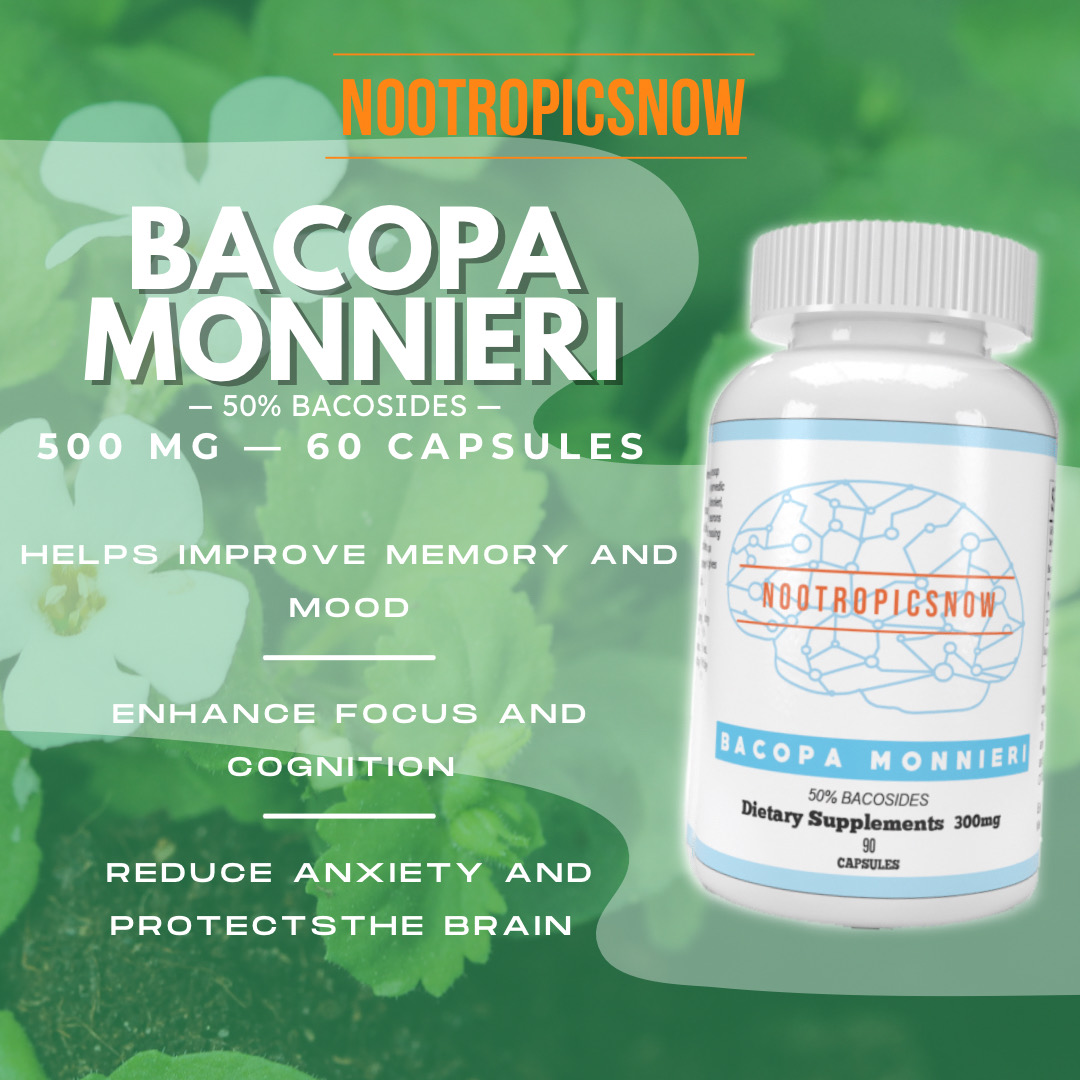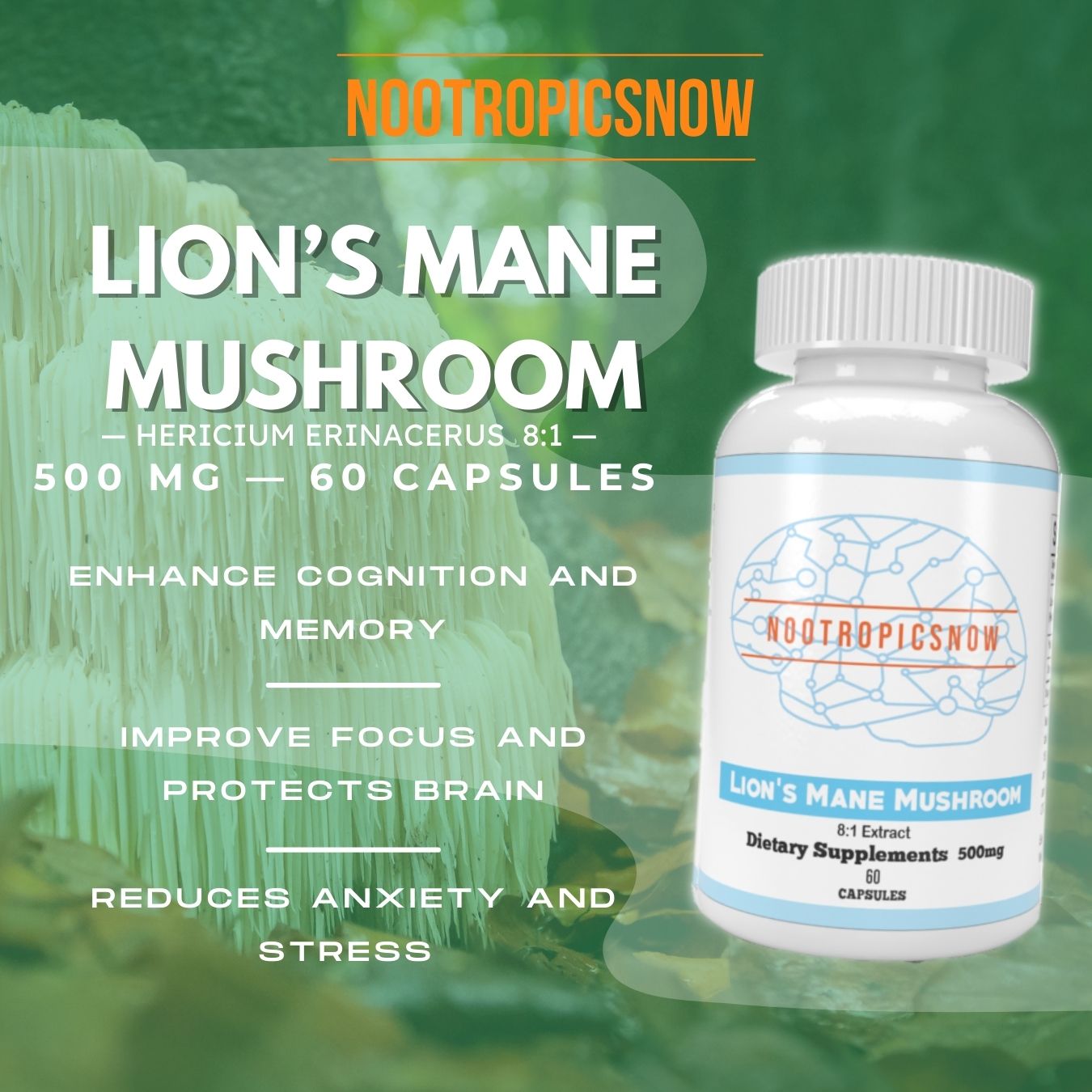Ashwagandha: Nootropic Benefits?

`markdown
Is Ashwagandha a Nootropic? A Deep Dive into Cognitive Benefits
Ashwagandha (Withania somnifera) is an ancient medicinal herb central to Ayurvedic medicine. It has gained considerable popularity in recent years as a potential cognitive enhancer. But does it truly qualify as a nootropic? This section explores Ashwagandha’s potential cognitive benefits, mechanisms of action, and whether it fits the definition of a nootropic substance. We will delve into the scientific evidence and explore the various ways Ashwagandha may impact brain function.
Understanding Nootropics and Their Mechanisms
Before determining if Ashwagandha is a nootropic, it’s vital to understand what nootropics are and how they function. Nootropics, often called “smart drugs,” are substances that may enhance cognitive functions. These enhancements can include improvements in memory, attention span, focus, motivation, and overall mental performance. Furthermore, nootropics are considered to have low toxicity and few side effects.
Core Mechanisms of Nootropic Action
Nootropics work through several key mechanisms, often overlapping to produce synergistic effects. Here are some primary ways nootropics impact the brain:
Ashwagandha: An Overview of Its Traditional Uses and Bioactive Compounds
Ashwagandha has been utilized in traditional Ayurvedic medicine for thousands of years. It’s considered an adaptogen, meaning it helps the body adapt to stress and maintain homeostasis. It’s therefore valued for its wide range of therapeutic properties.
Key Bioactive Compounds in Ashwagandha
Ashwagandha’s beneficial effects are attributed to several bioactive compounds, including:
Ashwagandha’s Cognitive Benefits: Examining the Evidence
Numerous studies have investigated Ashwagandha’s potential cognitive benefits. The results suggest that it may improve various aspects of cognitive function.

View Product
Memory and Learning Enhancement
Several studies have shown that Ashwagandha can enhance memory and learning. A randomized, double-blind, placebo-controlled study published in the Journal of Dietary Supplements in 2017 found that Ashwagandha supplementation significantly improved immediate and general memory, as well as executive function and attention in healthy adults. Another study in 2014, published in the Journal of Ayurveda and Integrative Medicine, found that Ashwagandha improved memory and cognitive function in older adults with mild cognitive impairment.
Attention and Focus Improvement
Ashwagandha may also improve attention and focus. A study published in Evidence-Based Complementary and Alternative Medicine in 2013 found that Ashwagandha improved reaction time and mental alertness in healthy adults. Moreover, the ability to maintain focus is important for productivity.

View Product
Stress Reduction and Cognitive Performance
Chronic stress can impair cognitive function. Ashwagandha’s adaptogenic properties can help reduce stress and anxiety, indirectly improving cognitive performance. A study published in the Indian Journal of Psychological Medicine in 2012 found that Ashwagandha significantly reduced stress, anxiety, and depression in adults.
Impact on Neurodegenerative Diseases
Research suggests that Ashwagandha may have neuroprotective effects relevant to neurodegenerative diseases like Alzheimer’s and Parkinson’s. A study published in PLoS One in 2015 found that Ashwagandha extract protected brain cells from damage caused by β-amyloid, a protein implicated in Alzheimer’s disease. Additionaly, it improved cognitive function in animal models of Alzheimer’s.
Mechanisms of Action: How Ashwagandha Affects the Brain
Ashwagandha’s cognitive benefits are linked to several mechanisms of action within the brain.
Modulation of Neurotransmitters
Ashwagandha may influence neurotransmitter levels, particularly acetylcholine, GABA, and serotonin. Some studies indicate that Ashwagandha can inhibit acetylcholinesterase, the enzyme that breaks down acetylcholine. By inhibiting this enzyme, Ashwagandha can increase acetylcholine levels in the brain. This contributes to improved memory and learning.
Antioxidant and Anti-Inflammatory Effects
Oxidative stress and inflammation can impair brain function. Ashwagandha possesses potent antioxidant and anti-inflammatory properties. These properties can protect brain cells from damage and improve overall brain health. Withanolides, in particular, have been shown to reduce oxidative stress and inflammation in the brain.
Neuroprotective Properties
Ashwagandha exhibits neuroprotective effects, which may help prevent cognitive decline. It can protect brain cells from damage caused by toxins and other stressors. Furtheremore, it promotes the survival and growth of brain cells, which is essential for maintaining cognitive function.
Influence on Brain-Derived Neurotrophic Factor (BDNF)
Brain-Derived Neurotrophic Factor (BDNF) is a protein that plays a crucial role in brain health and cognitive function. BDNF supports the survival of existing neurons and encourages the growth of new neurons and synapses. Some studies suggest that Ashwagandha may increase BDNF levels in the brain, which could contribute to its cognitive-enhancing effects.
Dosage and Safety: What You Need to Know
While Ashwagandha is generally considered safe, it’s essential to adhere to appropriate dosages and consider potential side effects.
Recommended Dosage
The optimal dosage of Ashwagandha varies depending on the individual and the specific product. Generally, a daily dose of 300-500 mg of a standardized extract containing a known percentage of withanolides is considered safe and effective. It’s best to start with a lower dose and gradually increase it as needed.
Potential Side Effects
Ashwagandha is generally well-tolerated, but some people may experience side effects. These can include:
Contraindications
Ashwagandha is not recommended for pregnant or breastfeeding women. People with autoimmune diseases should also use it with caution, as it may stimulate the immune system.
Ashwagandha vs. Other Nootropics: A Comparison
To truly assess Ashwagandha’s place in the nootropic landscape, it’s helpful to compare it to other popular nootropics.
Ashwagandha vs. Synthetic Nootropics
Synthetic nootropics, such as piracetam and modafinil, are created in a lab and often have more potent and targeted effects than natural nootropics like Ashwagandha. However, synthetic nootropics also tend to have a higher risk of side effects. Ashwagandha, on the other hand, is a natural herb with a long history of use. While its effects may be more subtle, it has a lower risk of side effects.
Ashwagandha vs. Other Natural Nootropics
Other popular natural nootropics include Bacopa monnieri, Lion’s Mane mushroom, and Rhodiola rosea. Bacopa monnieri is known for its memory-enhancing effects, while Lion’s Mane mushroom is valued for its neuroprotective and nerve growth-promoting properties. Rhodiola rosea is prized for its adaptogenic properties and ability to reduce fatigue.

View Product
Ashwagandha shares some similarities with these other natural nootropics. It also has adaptogenic properties and can improve memory and cognitive function. However, Ashwagandha’s stress-reducing effects are particularly noteworthy. This makes it a good choice for people who experience cognitive impairment due to stress and anxiety.
Here’s a table summarizing the comparison:
| Nootropic | Type | Primary Benefits | Potential Side Effects |
|---|---|---|---|
| :—————— | :——– | :—————————————————————— | :—————————————————— |
| Ashwagandha | Natural | Stress reduction, memory enhancement, neuroprotection | Digestive issues, drowsiness, thyroid interactions |
| Bacopa Monnieri | Natural | Memory enhancement, anxiety reduction | Digestive issues, fatigue |
| Lion’s Mane Mushroom | Natural | Neuroprotection, nerve growth promotion, cognitive enhancement | Mild digestive issues |
| Rhodiola Rosea | Natural | Stress reduction, fatigue reduction, cognitive enhancement | Dizziness, dry mouth, insomnia |
| Piracetam | Synthetic | Cognitive enhancement, memory improvement | Anxiety, insomnia, headaches |
| Modafinil | Synthetic | Increased alertness, improved focus | Headaches, nausea, anxiety, insomnia |
Is Ashwagandha a Nootropic? Verdict and Conclusion
Based on the available evidence, Ashwagandha can be considered a nootropic. It exhibits several cognitive-enhancing properties, including improvements in memory, attention, and stress reduction. These benefits are attributed to its various mechanisms of action, such as neurotransmitter modulation, antioxidant effects, and neuroprotective properties.
However, it’s important to recognize that Ashwagandha’s effects may be more subtle compared to synthetic nootropics. It’s also a more holistic approach to cognitive enhancement, focusing on reducing stress and promoting overall brain health. As with any supplement, it’s essential to use Ashwagandha responsibly and consult with a healthcare professional.

View Product
Integrating Ashwagandha into a Nootropic Stack
For those interested in incorporating Ashwagandha into a nootropic stack, consider combining it with other natural nootropics. For example, Ashwagandha and Bacopa monnieri could create a synergistic effect for memory and cognitive enhancement. Rhodiola rosea and Ashwagandha can complement each other in reducing stress and fatigue.
By understanding Ashwagandha’s cognitive benefits, mechanisms of action, and safety considerations, you can make an informed decision about whether it’s right for you.
`
Ashwagandha: A Natural Nootropic?
Ashwagandha, scientifically known as Withania somnifera, is an adaptogenic herb prominently featured in Ayurvedic medicine for millennia. Celebrated for its multifaceted health benefits, Ashwagandha elicits the question: can it be classified as a nootropic? To answer this, we must delve into its cognitive-enhancing properties and compare them against the defining characteristics of nootropics.
Defining Nootropics: Cognitive Enhancement Unveiled
Nootropics, often termed “smart drugs” or cognitive enhancers, encompass a diverse group of substances known for their ability to bolster cognitive functions. These benefits include enhanced memory, heightened focus, improved creativity, and sustained motivation. Nootropics can be synthetic compounds meticulously engineered in laboratories or naturally occurring substances extracted from plants or other organic sources. Ultimately, nootropics aim to optimize mental performance and cognitive resilience.
Ashwagandha’s Impact on Cognitive Function: Exploring the Evidence
Ashwagandha’s potential as a nootropic lies in its observed effects on various cognitive domains. Let’s examine the supporting evidence:
Memory and Learning Enhancement
Several studies suggest that Ashwagandha can significantly improve memory and learning abilities. A 2017 double-blind, placebo-controlled study published in the Journal of Dietary Supplements found that Ashwagandha root extract improved immediate and general memory, task performance, and attention in healthy adults. Participants taking 300mg of Ashwagandha twice daily for eight weeks exhibited notable enhancements in cognitive functions compared to the placebo group. Further investigation is crucial, but the preliminary findings are definitely promising. Another randomized, double-blind, placebo-controlled clinical trial from 2022 demonstrated that participants taking Ashwagandha showed statistically significant improvement in logical memory and verbal learning[6].
Stress Reduction and Cognitive Performance
Chronic stress can wreak havoc on cognitive function, impairing memory, attention, and decision-making. Ashwagandha’s adaptogenic properties help mitigate the adverse effects of stress by modulating the hypothalamic-pituitary-adrenal (HPA) axis, the body’s central stress response system. A 2019 meta-analysis published in Nutrients highlighted Ashwagandha’s effectiveness in reducing stress and anxiety, leading to improved cognitive performance under stressful conditions. Consequently, it boosts cognitive resilience by reducing cortisol levels and enhancing mental clarity.

View Product
Neuroprotection and Brain Health
Ashwagandha possesses neuroprotective properties that may safeguard brain cells from damage and degeneration. Research suggests that it can protect against oxidative stress, a major contributor to age-related cognitive decline and neurodegenerative diseases like Alzheimer’s disease. Studies also indicate that Ashwagandha promotes the growth and regeneration of nerve cells, which are essential for maintaining cognitive function throughout life.

View Product
Mood Enhancement and Cognitive Clarity
Beyond its direct cognitive effects, Ashwagandha can also improve mood and reduce symptoms of depression and anxiety. These psychological benefits indirectly contribute to enhanced cognitive performance by creating a more conducive mental environment for learning and concentration. Individuals often experience heightened mental clarity and improved focus when their mood is balanced and stress levels are managed.
The Mechanisms of Action: How Ashwagandha Works its Magic
To understand Ashwagandha’s potential as a nootropic fully, it’s essential to explore the mechanisms by which it exerts its cognitive effects.
Modulation of Neurotransmitters
Ashwagandha interacts with neurotransmitter systems in the brain, influencing the activity of key chemicals involved in cognitive processes. It enhances acetylcholine levels, a neurotransmitter crucial for memory and learning. It also modulates the GABA system, which plays a role in reducing anxiety and promoting relaxation. Ashwagandha acts as a mild GABA agonist, fostering a sense of calm and reducing mental chatter.
Antioxidant and Anti-inflammatory Properties
Ashwagandha contains potent antioxidant and anti-inflammatory compounds that combat oxidative stress and inflammation in the brain. These effects help protect brain cells from damage and support optimal cognitive function. By neutralizing harmful free radicals and reducing inflammatory markers, Ashwagandha promotes a healthier brain environment conducive to cognitive performance.
Nerve Growth Factor (NGF) Stimulation
Research indicates that Ashwagandha can stimulate the production of nerve growth factor (NGF), a protein crucial for the growth, maintenance, and survival of nerve cells. By promoting NGF synthesis, Ashwagandha supports neuroplasticity, the brain’s ability to adapt and reorganize itself by forming new neural connections. This neuroplasticity is vital for learning and memory consolidation.
Stress Hormone Regulation
As previously mentioned, Ashwagandha modulates the HPA axis, which reduces the production of cortisol, the primary stress hormone. By lowering cortisol levels, Ashwagandha helps prevent the detrimental effects of chronic stress on cognitive function. This stress-reducing effect is particularly beneficial for individuals facing demanding cognitive tasks or high-pressure situations.
Scientific Studies and Research: Substantiating the Claims
Several studies have investigated Ashwagandha’s effects on cognitive function and brain health, providing scientific evidence to support its potential as a nootropic.
Dosage and Safety Considerations: Navigating the Landscape
When considering Ashwagandha as a nootropic, it’s essential to be mindful of dosage and safety considerations. While Ashwagandha is generally considered safe, it can cause side effects in some individuals, especially at high doses.
Recommended Dosage
The optimal dosage of Ashwagandha varies depending on individual factors and the specific product being used. However, most studies have used dosages ranging from 300 to 600 mg of Ashwagandha root extract per day. It’s best to start with a lower dose and gradually increase it as needed, monitoring for any adverse effects. A higher dosage of up to 1250mg may be considered for more severe stress, but consultation with a healthcare professional is recommended.
Potential Side Effects
Common side effects of Ashwagandha may include digestive upset, diarrhea, nausea, and drowsiness. In rare cases, Ashwagandha can cause allergic reactions. It’s essential to discontinue use and seek medical attention if you experience any severe side effects.
Interactions and Contraindications
Ashwagandha may interact with certain medications, including immunosuppressants, sedatives, and thyroid hormones. Individuals with autoimmune disorders, thyroid conditions, or pregnant or breastfeeding women should consult with a healthcare professional before taking Ashwagandha.
Incorporating Ashwagandha into a Nootropic Stack: Synergistic Effects
Ashwagandha can be effectively incorporated into a nootropic stack, where it can work synergistically with other cognitive-enhancing substances. Combining Ashwagandha with other natural nootropics, such as Bacopa Monnieri or Lion’s Mane Mushroom, can amplify its cognitive benefits.
Synergy with Other Nootropics
Lifestyle Factors
To maximize the benefits of Ashwagandha, it’s crucial to maintain a healthy lifestyle that includes a balanced diet, regular exercise, and sufficient sleep. Adequate sleep is particularly important for cognitive function, as it allows the brain to consolidate memories and repair itself.
The 2024 Perspective: Ashwagandha as a Complementary Approach
In 2024, the use of Ashwagandha as a natural nootropic remains a promising area of exploration. It’s essential to view Ashwagandha as a complementary approach to cognitive enhancement rather than a replacement for other lifestyle modifications or medical treatments. It may also provide synergistic benefits when taken along with medications.
Is Ashwagandha Truly a Nootropic? A Balanced Perspective
While Ashwagandha exhibits many properties associated with nootropics, such as memory enhancement, stress reduction, and neuroprotection, it’s essential to approach its classification with nuance.
Defining Characteristics Revisited
Compared to synthetic nootropics that directly target specific neurotransmitter systems, Ashwagandha exerts its effects through a more holistic approach. It modulates multiple physiological processes, including stress response, inflammation, and neurotransmitter balance.
Long-Term Benefits
One of the advantages of Ashwagandha is its potential for long-term cognitive benefits. Unlike some synthetic nootropics that may provide short-term boosts but can lead to dependence or tolerance, Ashwagandha’s adaptogenic properties support overall brain health and cognitive resilience over time.
Integrative Approach
Ultimately, whether Ashwagandha is classified as a nootropic depends on one’s definition. However, its cognitive-enhancing properties and neuroprotective effects make it a valuable tool for supporting brain health and optimizing cognitive function.
Conclusion: Harnessing Ashwagandha for Cognitive Wellness
Ashwagandha shows great promise as a natural nootropic, offering multifaceted benefits for cognitive function and brain health. Ashwagandha holds tremendous potential for promoting cognitive wellness and optimizing mental performance, from memory enhancement and stress reduction to neuroprotection and mood elevation. However, it’s essential to approach Ashwagandha with caution, considering dosage, safety, and potential interactions. By incorporating Ashwagandha into a holistic wellness plan, individuals can experience its cognitive benefits and harness its potential for enhancing overall brain health and cognitive resilience. It remains a popular choice for enhancing mental performance and reducing stress, offering a compelling option for those seeking to optimize their cognitive function.



